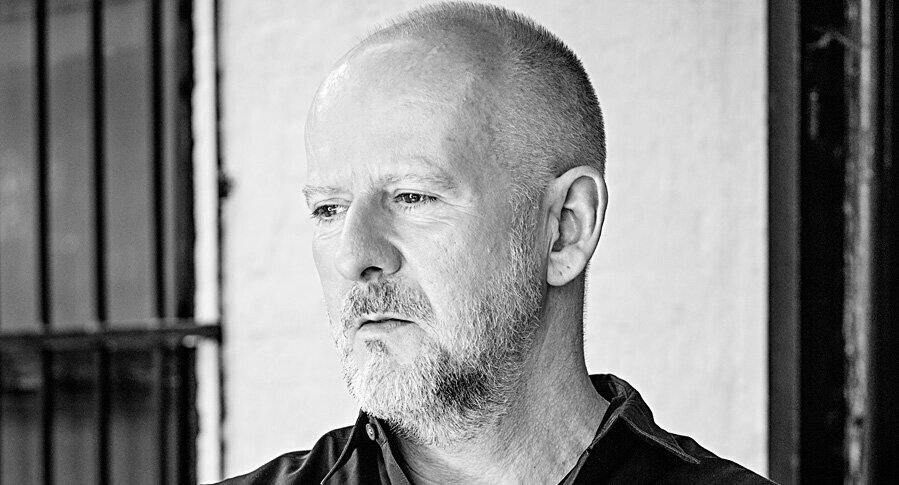
Simon Critchley
A Philosopher Laughs at Death — and the Public Listens
By Mark Dery
A brief excerpt from the article:
Having read Heidegger in the original, taught him for years, and published widely on his work, Critchley knows his subject back to front. Yet Apply-degger’s lectures never feel pretentious or pedantic. Critchley grew up in a working-class family in Hertfordshire, north of London, and was, as he told an interviewer in 2010, “a big-time punk” in the late ‘70s, with “bondage trousers, 10-hole Dr. Martens boots, and a Lewis leather jacket,” playing guitar in bands with names like the Fur Coughs. (Think about it for a minute.) He harbors an undying detestation of pedantry, which is synonymous, in his mind, with upper-class twits with Oxbridge airs. His teaching and writing are built on the unshakable conviction that “genuine philosophy can be explained simply and clearly,” an article of faith drummed into him at the University of Essex by his professor Frank Cioffi, who had zero tolerance for self-mystifying obscurantism. (When Critchley requested Cioffi’s permission to switch from a course on Foucault to one on Derrida, he signed off — under protest: “Man, that’s like going from horseshit to bullshit.”)
Click on the link above to read Mark Dery’s article in its entirety, published in The Journal of Higher Education
An Eight-Part Commentary on Being and Time
Part 1: Why Heidegger Matters
Part 2: Mineness
Part 3: Being-in-the-World
Part 4: Thrown into the World
Part 5: Anxiety
Part 6: Death
Part 7: Conscience
Part 8: Temporality
Apply-Degger: A Podcast Series on Heidegger
Apply-degger is a long-form, deep dive into the most important philosophical book of the last 100 years. Each episode of this podcast series will present one of the key concepts in Heidegger’s philosophy. Taken together, the episodes will lay out the entirety of Heidegger project for people who are curious, serious and interested, but who simply don’t have the time to sit down and read the 437 densely-written pages of the book. What is said in these episodes will hopefully be clear and helpful, but not easy.
“Apply-degger is not intended for everyone. I am not seeking to make philosophy simple or offer patronizing banalities about life. These are not Ted talks. In many ways, they are the opposite. They are slow, clear and intimate explorations of Heidegger’s ideas in Being and Time. It is my conviction that genuine philosophy can be explained simply and clearly. But it takes the time that it takes. And that can’t be rushed.” – Simon Critchley

